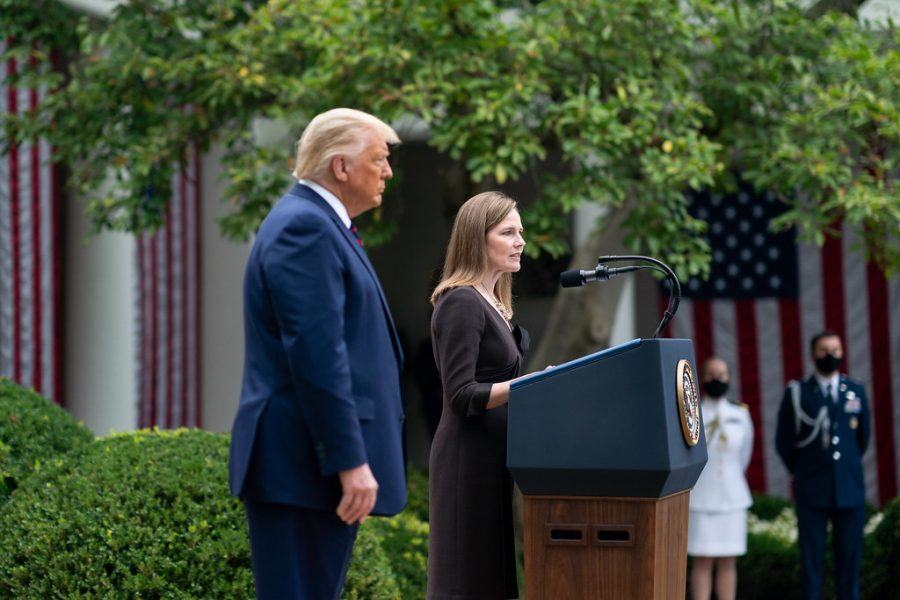Amy Coney Barrett nomination risks overturning freedoms for primitive setbacks
Barrett was a celebrated professor at Notre Dame, but her nomination will be highly contested in the senate.
The upcoming election is in less than a month, and there’s a lot of uncertainty for Americans to dwell on. Following the death of Supreme Court Justice Ruth Bader Ginsberg, President Trump nominated Judge Amy Coney Barrett despite wishes for the seat to remain empty until a new president was elected. Both women represent the two polarizing dichotomies of American politics, and Barrett’s nomination puts the Supreme Court on the cusp of becoming the most conservative that it’s ever been since the 1930s with a 6-3 conservative-liberal ratio. She could lead for decades because of her young age, a worrisome thought for many because of her questionable religious affiliations that were recently rediscovered.
With her nomination and appointment as federal judge in the U.S. 7th Circuit in 2017, Barrett received a mixed reception for her devotion to a tight-knit Christian group – People of Praise. The group is described to be a “lifelong commitment” to their covenant, and members answer to a same-sex adviser – “head” for men and “handmaiden” for women. Critics point out how People of Praise evokes a dystopian, sexist perspective on religion, while supporters praise Barrett for her devotion despite claiming there’s anti-Catholic bias.
As Sen. Dianne Feinstein said, the dogma of Barrett’s faith is too apparent in her views. For her to be potentially appointed into a position that promises equal justice under the law, the separation of church and state should apply to Barrett to avoid suppressing democracy.
Despite claiming that her personal beliefs will not cloud her judgment, Barrett’s past shows that her objectivity is questionable. Her questionnaire revealed that she made 25 appearances in front of the Federalist Society – a conservative organization that asks for the original interpretation of the Constitution. It also revealed that Barrett spoke before the Alliance Defending Freedom and Blackstone Legal Fellowship – both highly conservative, religious organizations that promote anti-LGBTQ and anti-abortion views. While the Notre Dame community, where she teaches as a law professor, deem her as “open-minded,” her convictions state otherwise.
Barrett’s nomination brings about serious threats to many rights. To start, Barrett argues for originalism, believing that stare decisis – the principle that courts should follow precedents set by prior court decisions – isn’t necessary. This is more alarming knowing that she is pro-life and against the precedent set by Roe v. Wade. In 2006, she conveyed this sentiment by signing an advertisement in 2006 that promoted anti-abortion movement in a way that supporters even found extreme.
It’s abundantly clear that Barrett’s Supreme Court nomination brings risk to many progressive freedoms in turn for barbaric setbacks. Although she was nominated in hopes of furthering the president’s views to reverse the Affordable Care Act and reproductive rights, the process of confirming a nomination takes an average of more than 50 days after the announcement.
Accepting the nomination despite the late Justice’s wishes would show the cruel reality of the American government. While it’s pushed to exercise freedom for all, the truth that the possible Supreme Court makeup reveals that there’s only room for freedom to some. Even if there’s a glimmer of hope that Barrett will not be voted in by the Senate, her highly religious values threaten the separation of church and state.

I'm Taheera Washington, and I'm one of the Newsletter Editors! I'm a senior majoring in Writing & Rhetoric with a concentration in Creative Writing...







